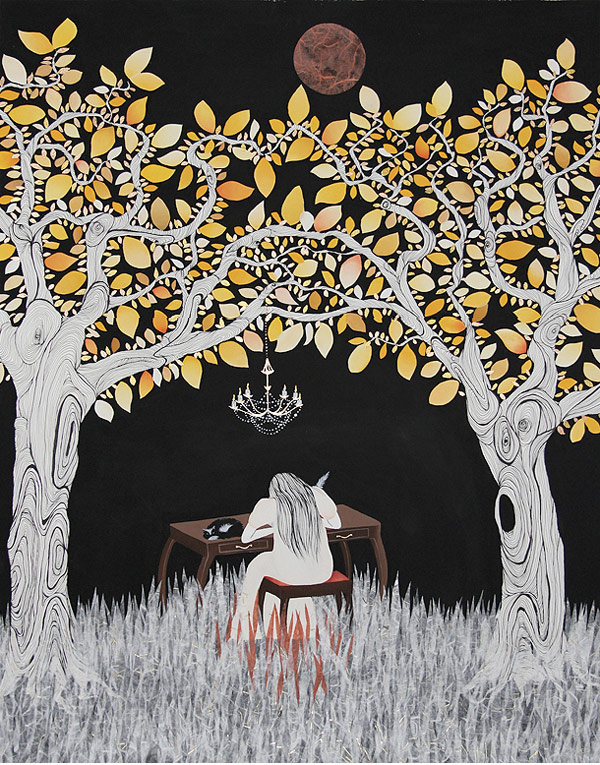I float, horizontal, on the heaving night-
tip my head back and feel the night beneath me and around,
buoying me gently but unthinkingly
on its ballooning troughs and swells.
Languorous, I sink my hot neck into its chilling lick of
gloss.
The night air fills my nostrils, it fattens my lungs,
but there is no drowning.
I am in my element.
A queer music wakes me from my drifting.
It is an oriental trilling that, minutes later,
turns into the fading throttle of a Postie bike
along the rim of the bay.
At this hour, all kinds of events make music,
and the marsupials speak like people in the ceiling,
chasing each other in a passion of patriarchy.
The animals wake me, and other times,
I hear my name spoken, or the threatening breath of a
stranger
that turns out to be my own.
In the night, my own skin, my own flesh, comfort me.
I love the weight and the heat of myself when I wake,
not knowing the time, my mouth dry as the Sneffels Volcano
where you can find your way to the centre of the earth.
Oh, you must know what I mean.
It must be the most human of things to wake and wonder at
the night…
the most human of things to bow down to the horizon,
to put one’s cheek to the ground and to wait out the
darkness
pretending sophistication, pretending science,
while the ghoulies and ghosties are abroad.
That’s why I sleep in a tent of muslin, like a big cotton
conch.
At night, I am the germ of human. I am a soft creature,
I am a mollusc. The hawking and slagging of the waves
shuffles me on the shale.


















